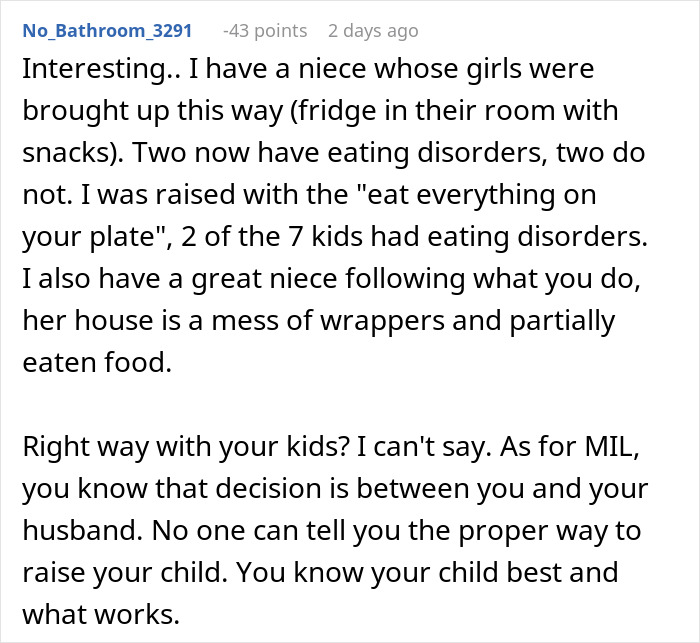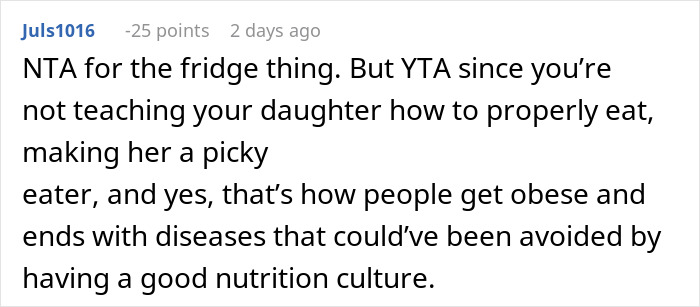When people ask their parents to spend time with their kids, the invitation usually comes with a set of conditions.
For Reddit user Vast-Cartographer588, her daughter’s autonomy in food choices was a top priority, so as her mother-in-law came over to babysit the girl, she wanted the lady to ensure that this principle was also respected.
However, after the woman and her husband returned home, they found the child crying and learned that grandma had completely disregarded the boundary.
This woman had a major fallout with her mother-in-law over her daughter’s eating habits

Image credits: NatalyaTemnaya / envatoelements (not the actual photo)
So she told the story to the internet, and asked whether the lady was, indeed, out of line, or if she was overreacting
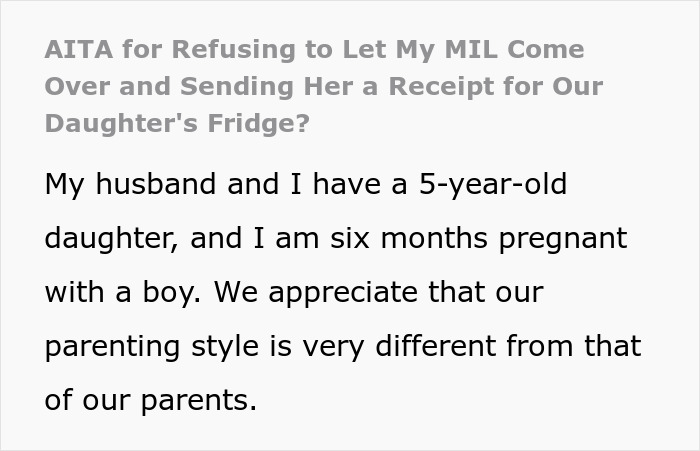
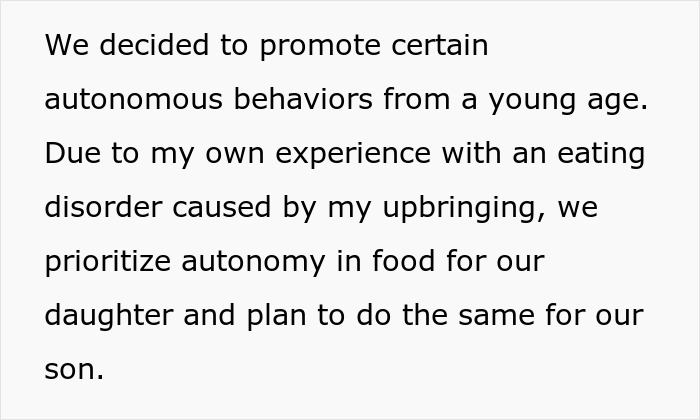

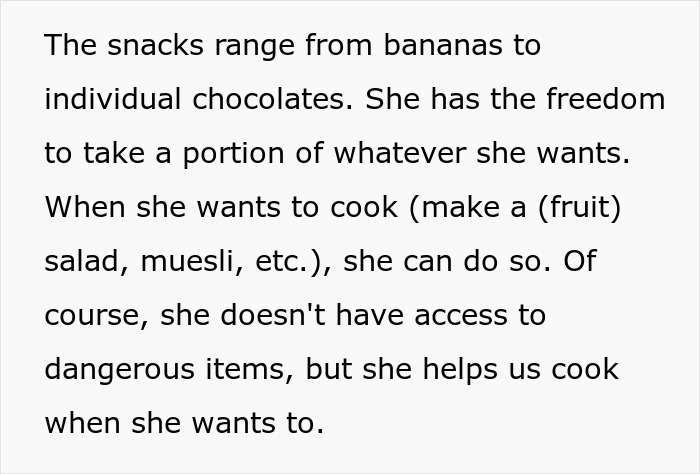


Image credits: Image-Source / envatoelements (not the actual photo)
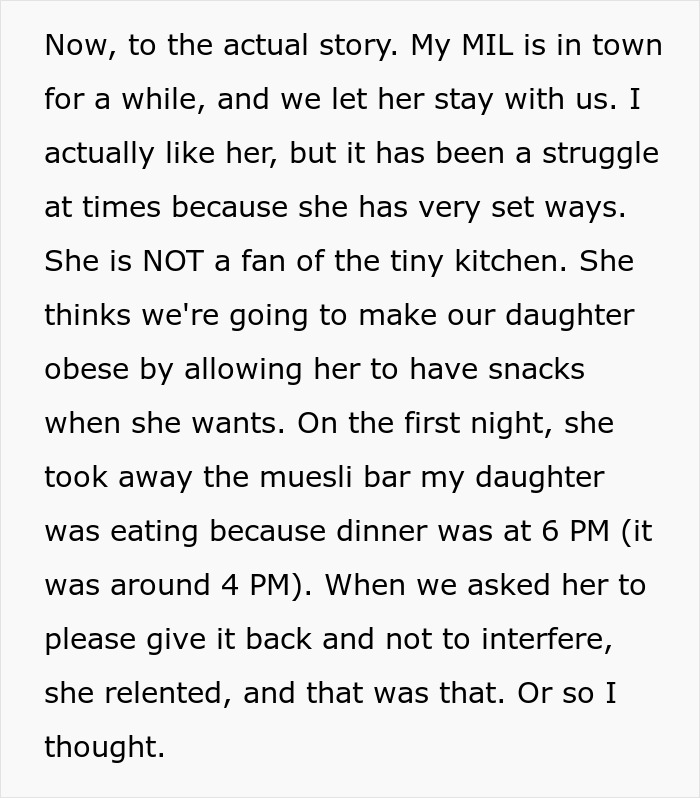
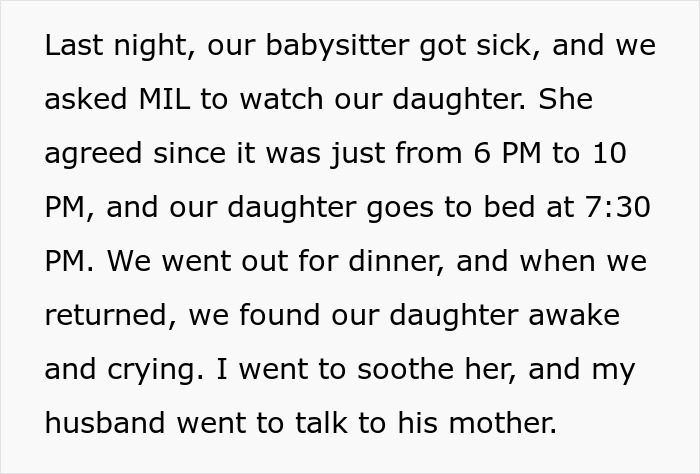
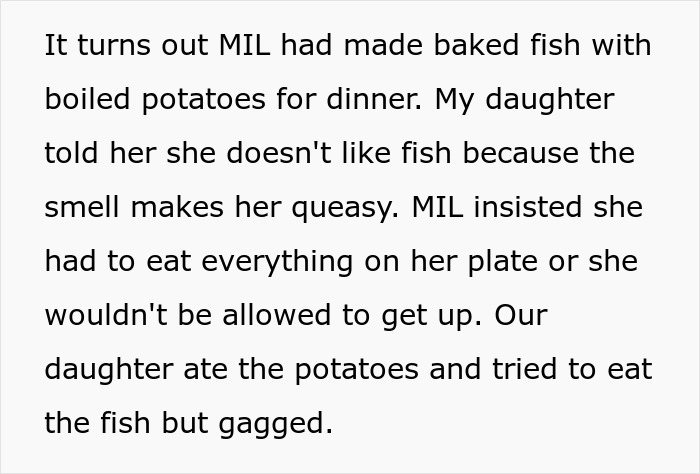


Image credits: nd3000 / envatoelements (not the actual photo)





Image credits: Vast-Cartographer588
Experts say forcing a child to eat doesn’t lead to anything good

Image credits: kinderfotografin / envatoelements (not the actual photo)
Registered dietitian nutritionist Grace Fjeldberg says it takes 12 to 17 times to introduce a food to children before they’re even interested in trying it, so they can’t be expected to love something right away. The fact that the girl took a bite of the fish was progress on its own.
“Children’s appetites will change based on how fast they’re growing. At times, it may seem like children are never full, and other times they won’t eat more than one bite,” Fjeldberg explains.
“It’s best not to trick, bribe, or force a child to try new foods. Describe the food’s taste, texture, and temperature to help children become more comfortable with new food.”
According to the nutritionist, many parents are concerned about what and how much their kids eat. However, it’s important to remember that it’s normal for kids to choose not to eat meat at one meal and only eat bread at another. “Pushing them to eat food they don’t want could make them rebellious and decide not to eat it at all,” she adds.
“When children are forced to eat veggies, they often cry and may even gag. This experience may teach children that veggies are not pleasant and may limit their desire to try them in the future.”
To raise healthy eaters, Fjeldberg suggests these tips:
- Offer at least three food groups at each meal and snack: fruits, veggies, whole grains, low-fat dairy, lean protein or legumes.
- Ensure one food is offered with each meal your child will eat while not catering to likes and dislikes.
- Give your child the responsibility to choose how much and whether to eat at mealtime.
- Create an environment that allows your child to explore, touch, and experience different foods and textures at his or her own pace.
- Minimize mealtime distractions, such as the TV or having toys at the table. Enjoy conversation with family instead.
- Don’t be fooled by “distracted eating.” Children will often say they’re done eating to play, though they may not be done eating. Encourage your child to sit with the rest of the family, even if they say they are finished eating.
- Take charge of eating by providing consistent meals and snack times.
- Choose the healthy foods your child should eat. Young children don’t know what is healthy for them, so given a choice, they may not choose what is best for them.
- Model healthy eating behaviors in front of your children. They learn best from you.
Sounds like the mom was already on the right track.
“Grandparents love their grandchildren and they want their grandchildren to love them,” psychologist David J. Bredehoft, Ph.D., writes. “At times grandparents go a bit too far. They give grandchildren too much. They do too much for them. They don’t follow parents’ rules. They are too soft, too tough, or both.”
As a result, Bredehoft says parents often start limiting the amount of time their child sees their grandparents.
The majority of people who read the story said the mom did nothing wrong

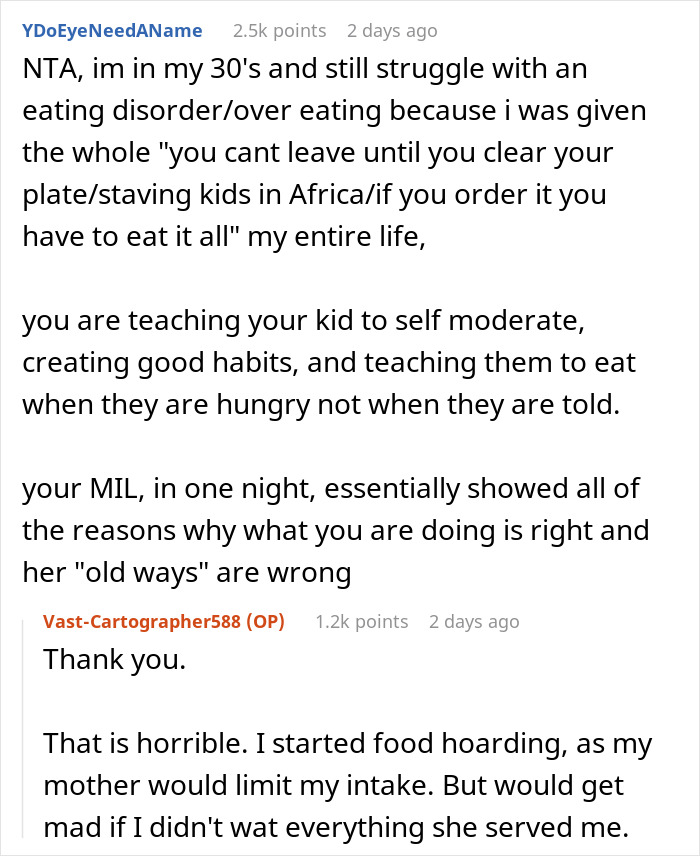























But some thought she could’ve handled things better and was (partially) to blame for what happened


